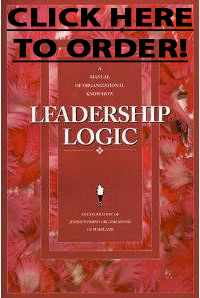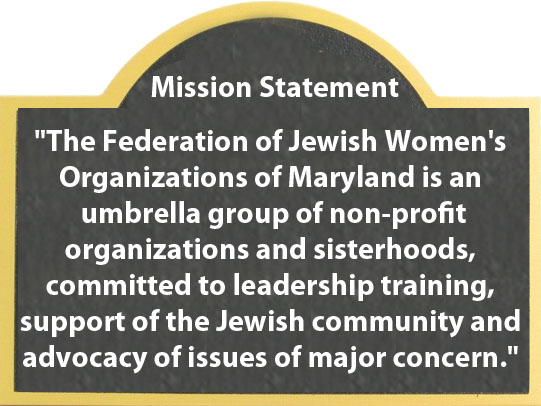Resolutions Submitted for Action- Convention, May 3, 2012
By the Resolutions Committee
Phyllis Abrams, Marcia Bornfriend, Ann Cohen, Carol J. Caplan, Jane Davis, Karan Engerman, Serene Israel, Arlene Mazer, Elissa Ness, Jo-Ann Orlinsky, Betty Seidel, Eve Vogelstein, Frada Wall, Helene H. Waranch, Lynda Weinstein, Hilda Yankelov…..Sheila K. Derman, Chair
PROTECTION OF WOMEN AND THEIR RIGHTS
The Federation, as well as almost all Jewish Women’s organizations, has a long standing position in support of women’s reproductive choices, opposing government interference in the right of a woman to make decisions about her reproductive life and health. Over the years, there have been many attempts to restrict or limit these choices, such as parental notification, bans on late term procedures, and lack of access to information and care. Recently introduced legislation defining an ovum as a “person” and mandating questionable procedures, such as an intervaginal sonogram, before having a legal abortion continue attempts to deny women these rights. Further, recent questionable statistics that show that annual mammograms and pap smears may not be necessary are cause for great concern. We are encouraged and appreciate the Administration’s reaffirmation that all women will have access to contraceptive care, allowing for sensitivity to religious freedom but realizing that it is the government’s responsibility to remain above religious differences.
Domestic abuse and violence continues to remain a profound challenge and has no boundaries. It affects all types of relationships, all socio-economic classes, all ages and all spectrums of religious and cultural life. Currently, the “Violence Against Women Act” (VAWA) is up for Federal reauthorization. This act provides funding to victims and to establish programs of community response and to educate law enforcement. Since its original passage in 1994, VAWA has dramatically enhanced our nation’s response to violence against women and has unquestionably improved our nation’s ability to keep victims and their children safe. In December 2011, the FBI Criminal Justice Advisory Board voted unanimously to update the archaic definition of rape in the FBI Uniform Crime Report. The current definition, adopted 82 years ago, has been extensively criticized for leading to widespread underreporting. This new definition will mean that we will begin to see the full scope of this horrific violence, increasing attention and resources for prevention and action.
The Federation is deeply concerned that recent events have shown attempts to enforce gender segregation in public, secular spaces under the banner of Jewish law have escalated in both Israel and certain neighborhoods in the United States. These range from seating on buses to walking space on sidewalks and streets. Women who have resisted these practices have been subjected to abuse.
Therefore, the Federation of Jewish Women’s Organizations of Maryland in convention assembled on May 3, 2012 resolves:
- To support all Federal, State and Local legislation and regulations that allow women full access to information and care from contraception to heart disease, mammograms and pap smears, that enable her to make decisions about her health and reproductive life and opposing all barriers and government interference in these decisions.
- To support the reauthorization of VAWA and strengthening of all domestic violence laws that provide needed services to victims of abuse and aid and education to law enforcement.
- To call for increased and meaningful support of victims of rape (given the new definition as guidelines) and mandating that all information informing them of available resources and health options be provided without interference.
- To call on religious and political leaders everywhere to condemn and end attempts by extremists to segregate and discriminate against women in public spaces and to punish those who resort to violence.
ECONOMIC JUSTICE
In September 2011, the U.S. Census Bureau released figures showing that the wage gap remains unchanged since the passage of the Equal Pay Act in 1963. Women continue to earn 77 cents for every dollar earned by men, resulting in for women with comparable education a lifetime lost wages of $700,000 to $2 million. The “Paycheck Fairness Act” which would have ended loopholes in previous pay acts has failed to be enacted. There is great concern that Congress will reduce or reformulate Social Security and Medicare, putting the elderly, especially women at great financial risk. Access to credit is being reduced, especially by bias credit reporting which penalizes those who have lived within their means, paying as they go. Educational resources and programs on how to manage money are still very limited and difficult to access for many. It is still of great concern that mortgage lenders continue to operate with limited regulation and that those who are barely able to pay are being penalized as those who were and are irresponsible are being helped by tax payer dollars.Therefore, the Federation of Jewish Women’s Organizations of Maryland in convention assembled on May 3, 2012 resolves:
- To urge the enactment of the “Paycheck Fairness Act” and stricter enforcement of pay equity laws which will provide safeguards for women against workplace pay and pension discrimination reducing the wage gap.
- To urge that Congress and all levels of government ensure that Social Security, Medicare, and retirement benefits be protected from budget cuts and continue to be funded and available as promised to those who are eligible.
- To urge the enactment of regulations that provide equitable access to credit without higher fees and reduced financial opportunities that discriminate without reasonable cause, especially against women and that create better and fairer methods of determining “good” credit.
- To urge that financial education be provided to empower all, especially women, to become financially stable and able to manage their own money.
- To urge that mortgage lenders continue to be monitored and regulated at all levels of government to ensure that properties are appropriately evaluated and that borrowers and lenders be held accountable in an equitable manner.
BULLYING
The many forms of bullying affect one third of our youth today, including college students. Bullying and harassment is a continuing problem for school districts, college campuses, parents, students, and communities across the nation. The impact of bullying has been well documented from fear and isolation to suicide. In addition to face-to-face bullying, cyberbullying has become another means for some to bully and harass others. An increasing number of youth are misusing technology to bully, harass, and even incite violence against others. As opposed to traditional bullying, cyberbullying through modern communication technology can be even more pervasive and invasive. Despite the prevalence and impact of cyberbullying, many adults are unaware of the problem due to a lack of fluency in new technologies. Further, bullying can often reflect anti-Semitism and hate, making it a special concern to the Jewish community.Therefore the Federation of Jewish Women’s Organizations of Maryland in convention assembled on May 3, 2012 resolves:
- To urge legislation at all levels of government which require schools, both public and private, and communities to adopt comprehensive bullying laws that are proactive and responsive to include a clear definition of bullying and cyberbullying, explicitly prohibiting bullying in the categories of race, religion, national origin, gender, sexual orientation, and disabilities. These laws should require clear procedures for safe reporting and investigation.
- To urge Internet Service Providers and social networking platforms to adopt “Terms of Service” that prohibit cyberbullying and cyberhate with a provision of a readily identifiable and monitored address for reporting improper activities and a commitment for timely review.
- To educate our constituents and our communities about the issue of bullying and the avenues for response, while working to change the culture that allows bullying to occur.
- To mandate education and regular training for teachers, parents, law enforcement, community leaders, and students about how to recognize and respond to bullying and cyberbullying.
- To promote community resources to develop programs available to everyone to learn about the issue and how to respond and to provide counseling services for targets and perpetrators.


 Calendar
Calendar